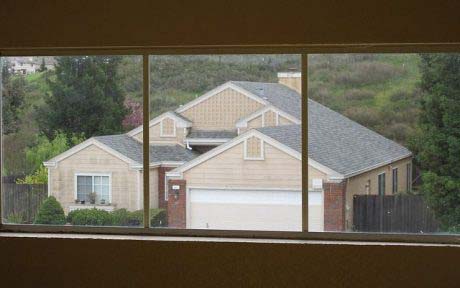Symbolism of Home: The Journey to Our Inner House, #1

I’ve looked at the symbolism of home before in this blog, but it’s important enough to explore it in more depth. Home evokes powerful feelings of belonging, safety, and contentment.

These feelings are absolutely essential to our lives. For /a-midlife-transition, they represent needs that we have to meet to feel like our lives are worthwhile and meaningful. If we don’t feel that, we rapidly get into difficulties.
Issues of belonging, safety and contentment have particular importance at this time of year. As August ends, the vast majority of people in our culture move back into post-summer, “busy season” mode. The questions of belonging, feeling physically and psychologically safe, and feeling that we’re getting enough positive experience out of our lives to meet our fundamental needs become very central at this time of year. And so, connection to whatever we define as “home” becomes extremely important.
Frantic Energies
In our society, so much energy goes into finding a home and making it secure, in many ways. When we think about the industries involved, and the amount of economic effort, it’s simply staggering: real estate; construction; home renovation; home cleaning; home organizing; home decorating, gardening and garden supply and many others.
In a suburban place, like Oakville where I live, you can palpably feel the investment people have in their homes. This is certainly financial, but there is also a very real and powerful emotional connection. If you visit Home Depot, Home Hardware, or Lowe’s on any summer weekend, you will feel the intensity of this connection, almost physically.
From the perspective of /a-midlife-transition, what is all this incredible energy? What are we looking for? What is this sense of “home” that we all seem to need for our psychological well-being?
For Humans, Everything Starts with the Symbolism of Home…
For humans, life psychologically begins in the maternal womb, the model for all later homes. Many species of animals instinctively create womb-like burrows. Similarly. the first homes that human beings created for themselves tended to be very small, safe and secure — often physically resembling wombs.
Once having left the womb, humans cannot return to it. Still, the return to home, to our true home, is often symbolized in religion and mythology. In the Judeo-Christian tradition, humans are expelled from the original perfect home of paradise at the beginning, but in the end of time come to “our true home” or perfect home, so it is believed. In Homer’s Odyssey, the whole dramatic action centers on the titanic struggle of Ulysses to return home.
And in our time, we really want womb-like security in our physical homes. There is so much energy in our society, so much anxiety that surrounds the symbolism of home.
Why? Those same three words: belonging, safety, and contentment. In our time, despite living in an affluent culture, many feel a fundamental insecurity. This has much to do with feeling secure about the self — who we fundamentally are.
Why Do People Crave Home So Much?
Certainly, a sense of security has much to do with the sense of feeling importantly connected and valued by significant others. As research by Dr. Katherine Carnelly and colleagues at University of Southampton, and much research world-wide shows, positive connection with others, positive attachment, enhances the sense of security and the felt perception of well-being. We need healthy, strong attachment to others for many dimensions of our well-being, and it is often good /a-midlife-transition seeks to enhance a positive sense of attachment. Yet there is another dimension, even beyond that.
Symbolism of Home: Grounding in the Secure Reality of the Self
Perhaps our preoccupation with real estate is actually an expression of concern for the self. Jungians stress that the house or home is often a symbol of the entire self or the personality of the dreaming individual. If we take that possibility seriously, then, on an unconscious level, our massive preoccupation with homes and real estate might be a reflection of a great concern about our individual selves, and feeling secure in our own being. Might such a concern relate to questions of our meaning, purpose, destiny and vocation? Is our “inner house” on a secure foundation?
In the remaining parts of this series, I hope to examine these questions in detail.
The work of /a-midlife-transition is fundamentally with the well-being of the Self, the entirety of the individual personality and the individual’s journey toward wholeness.
Brian Collinson, Registered Psychotherapist & Jungian Psychoanalyst
[cta]
